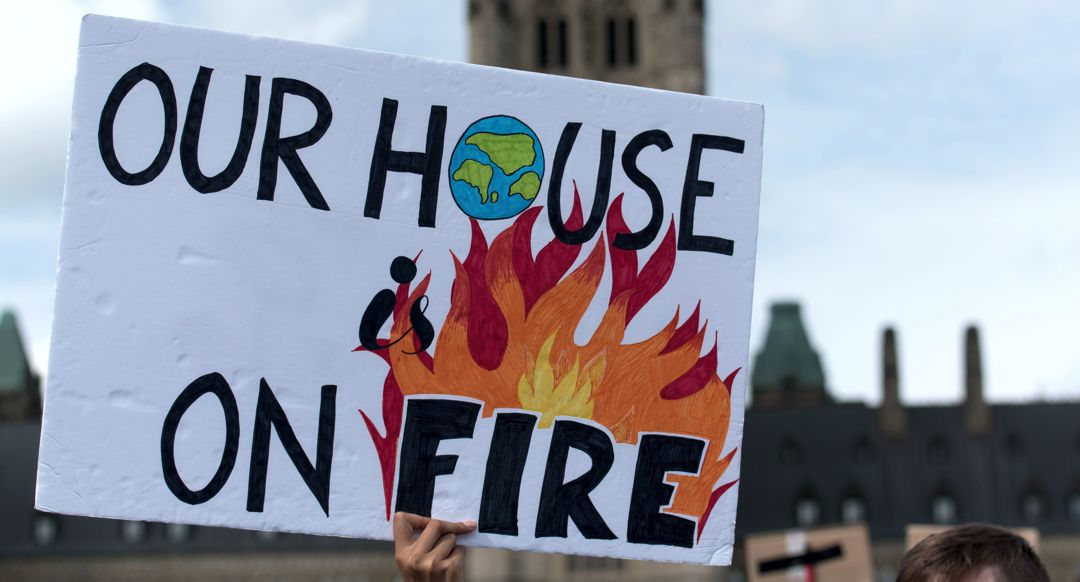
“I want you to act as you would in a crisis. I want you to act as if our house is on fire. Because it is.” Those are the words of Swedish teenage environmental activist Greta Thunberg, who in 2019 urged the European Parliament to “start panicking about climate change.” At the time, a report from the IPCC (Intergovernmental Panel on Climate Change) warned that we are less than 12 years away from not being able to limit the climate change catastrophe. Thunberg’s plea to the EU was simple: our political ideologies and economic structures have failed us, and we need transformational change.
Consequences of Inaction
As we continue to nervously roll out of bed and embrace whatever the new crisis de jour is, it’s easy to feel hopeless. A politics of fear and resentment has left us in the most incapable of hands during the most unprecedented times. We have not only run out of patience with an endless barrage of political failures, we have run out of alphabetical hurricane names with about half of the Atlantic hurricane season left to go. California just about doubled their wildfire record from 2018 with more than four million acres lost. Death Valley broke the world record for the highest temperature ever reliably recorded at 130F (while 2020 remains in contention for the hottest year in recorded history).
There have been 16 natural disasters that have caused at least $1 billion in damage. So far in the year 2020, FEMA has responded to more than 290 disasters – an unprecedented record, with four months left to go. America has tragically lost more than 210,000 souls to the COVID-19 pandemic; the world over 1 million.
2020 is a catastrophic year. Our house is on fire. But this was forecasted 32 years ago, far before Greta Thunberg was born. In 1988, NASA scientist James Hansen warned the Senate about climate change driven by a rise in carbon emissions. His graphs accurately traced the rise in global temperature to the year 2020. Yet our leaders have failed to take seriously the consequences of inaction. What will the next 32 years look like if we continue with business as usual? If 2020 has taught us anything, it’s that we are all vulnerable to the consequences of inaction.
The science is clear; the impacts inevitable. This is all a matter of cause and effect. If we fail to act on climate change, our house will continue to burn.
Need to Heal: Time to Vote
Like our dear mother earth, we are in need of healing. 2020 has shown us what it is like to feel vulnerable. We now understand that difficult problems require difficult solutions. And while wearing a face mask has proven to be too difficult for some, what’s even more terrifying are the 100 million Americans who couldn’t be bothered to vote in the 2016 election. COVID-19 coupled with the climate crisis have proven that our political ideologies and economic structures are failing each and every one of us – but if we fail to show up at the voting booth, our politics will never save us from disaster.
When the experts tell us how to act in a crisis, we must listen. The public health community has instructed us to wear a mask and practice social distancing. Many of us listen because we know our lives and the lives of our loved ones depend on it. Climate scientists have warned us that we have less than 12 years to act on climate change – it is time to act as if our lives and the lives of our loved ones depend on it.
Like Greta Thunberg, everyone needs you to vote. Your family, friends, and neighbors all need politicians who willingly embrace the scientific expertise of public health experts and climate scientists.
We need you to vote as if your house is on fire. Because it is.
 Jake Meyers
Jake Meyers
The opinions expressed in this piece are of the author’s and do not represent those of the U.S. Government or FEMA.
Jake is an Emergency Management Specialist at the Federal Emergency Management Agency (FEMA) in Washington D.C., where he strives to help the agency build a culture of preparedness to disasters. Jake holds a Master’s of Development Practice degree from the University of Arizona, where he focused on international climate resiliency and digital storytelling. Jake served in the Peace Corps in Benin, West Africa as an Environmental Action Advisor and worked as a Visiting Researcher with the Wildlife Conservation Society in Cambodia as a Fulbright scholar. Jake has led environmental research projects and development programs in over 15 countries, predominantly in Benin, Cambodia, South Africa, Kenya, Myanmar and Ecuador.